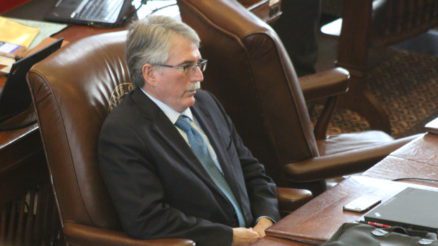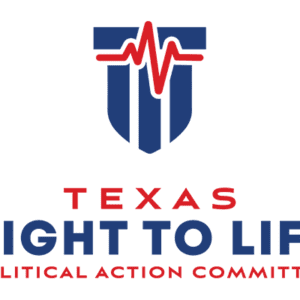Protecting minors from dangerous judicial bypass loophole
Texas law currently requires a minor seeking an abortion to secure the consent of at least one parent. However, the pregnant minor can circumvent parental authority by gaining permission from a judge to undergo a secret abortion.
The judicial bypass mechanism has been deemed necessary by the US Supreme Court for laws requiring the consent of a parent, but not for laws that require that a parent be notified prior to the minor’s abortion. Since 1999, when the judicial bypass law was passed as part of the Texas Parental Notification Act (Chapter 33, Texas Family Code), the bypass loophole has been exploited by the abortion industry, and sympathetic attorneys often volunteer to shepherd minor girls through the courts for their secret abortions. Minors who are sexually active can thus conceal this behavior from their parents. A minor victim of sexual abuse from a coach, neighbor, or other predator is further victimized by petitioning a judge in lieu of involving her parent in this life-changing medical procedure. This judicial bypass loophole supersedes parental rights and authority and endangers our young girls in Texas.
One of Texas Right to Life’s legislative goals for the recently adjourned 82nd Legislative Session, House Bill 2555 by Representative Fred Brown (R-College Station), would have closed the judicial bypass loophole. The purpose of HB 2555 was to strengthen parental involvement law by removing the judicial bypass procedure and strengthening the parental notification procedure. Unfortunately, key members of the legislature are not convinced that the state paying for counsel to help minors undergo secret abortions is a problem.
The judicial bypass procedure is the only court proceeding not reported or tracked by the state’s Office of Court Administration (OCA). Thus, crucial questions about this law remain unanswered: How many bypasses are sought? How many are heard? How many are denied? What is the basis for the decision? Did the pregnant minor have her own attorney? Was one appointed for her? Was the decision appealed? Does one county grant a higher number of bypasses than other counties? How much are taxpayers spending for fees for the courts and attorneys? What judicial districts are judge-shopped for sympathetic judges? Did the judge ever find abortion to not be in the best interest of the minor?
Data is required for other highly sensitive court proceedings: contested divorce, high profile corporate litigation, insurance fraud, medical malpractice, etc. The OCA keeps data on the courts, but not on this secret procedure, which could lead to death or permanent injury the minor.
In the 82nd Legislative Session, a bill to reorganize the entire Texas judiciary was introduced and travelled many of the required steps to passage. This bill, Senate Bill 1717 by Senator Bob Duncan (R-Lubbock) was a perfect vehicle to add amendments that would close some of the loopholes on the judicial bypass proceeding. When SB 1717 was heard on the House floor, Representative Will Hartnett (R-Dallas) amended the bill to require the collection of the type of data noted above for judicial bypass proceedings. (The anonymity of the girl would be protected at all times.) The data would be made on an aggregate basis according to judicial region so that the Legislature and the public would know if this process is working as legislators originally intended. Information such as this would prove invaluable in shining the light on the judicial bypass system in Texas.
Representative Phil King (R-Weatherford) also successfully added an amendment to SB 1717 that would require a financial audit of state funds being spent on judicial bypass proceedings and court appointed guardians ad litem and attorneys ad litem. Legislators want to know how much the state (that’s us) is paying for courts and abortion clinics to circumvent parental authority for minor abortions. The second part of Representative King’s amendment would have prohibited the court from appointing the attorney ad litem, who is usually referred by the abortion clinic, to also serve as the minor’s guardian ad litem. This separation would involve one more individual to represent the best interest of the minor. The attorney who is shepherding the girl through the court system for her secret abortion is not acting with the best interest of the minor; thus, another party appointed by the judge would hopefully be more neutral and actually assess the needs, concerns, and desires of the girl.
Senate Bill 1717, as amended by the House, was returned to the Senate, but the Senate sponsor, Senator Duncan, did not concur with the House version. A conference committee was then set to reconcile the differences, and that committee, chaired by Senator Duncan, rejected the Pro-Life amendments. The final version to emerge from the conference committee was set to be approved at the 11th hour of the 82nd session. Sadly, Texas Right to Life was told:
These must-pass bills are not the venue to make a stand on your issues. Some bills are off-limits to ideological fights, and you really should not meddle or slow the process for these.
Texas Right to Life’s position is that “must-pass” bills are the perfect vehicles for Pro-Life amendments. Our amendments passed in the House with very little opposition and with a wide margin; our amendments did not slow the bill’s passage whatsoever. For if such bills indeed must pass, then so, too, should additional protections for the sanctity of innocent human life. Oddly, this “must-pass” Senate Bill 1717 died on Sunday, May 29th at the midnight deadline due to partisan political squabbles unrelated to SB 1717 and unrelated to any Pro-Life issues.
Senator Duncan has refiled this bill for the special session, and as expected, this filed version does not include Texas Right to Life’s amendments. Governor Perry has not included this judicial reorganization bill as part of the special session so the bill may still languish until the 2013 83rd Legislative Session.
Tags: legislation, texas 2011




